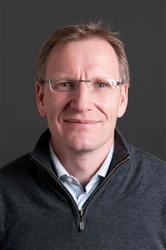ProjektAnaerobic degradation of environmental pollutants found in wet pyrolysis process water as affected by controlled…
Grunddaten
Titel:
Anaerobic degradation of environmental pollutants found in wet pyrolysis process water as affected by controlled oxygen micro-dosing
Laufzeit:
01.01.2022 bis 31.12.2022
Abstract / Kurz- beschreibung:
Anaerobic digestion (AD) represents a corner-stone technology for the sustainable bioeconomy because it facilitates the circular use of energy and nutrients. Wet pyrolysis (WP) is an emerging thermochemical conversion process that compliments AD, especially applications involving wet biomass. WP extends the range of biological treatment by exploiting the greater intensity of physical/chemical processes, which can unlock additional energy and nutrients from less biodegradable waste streams. Through WP, greater than 65% of biomass is transformed into energy products, such as carbon-dense hydrochar or biocrude oil. WP also generates process water, which is rich in dissolved organic compounds, including sugars, carboxylic acids, and aromatic compounds, which can be fed to an AD system. While most of the dissolved organic compounds found in WP process water are beneficial to the AD process – leading to increased methane production – some are thought to be resistant or detrimental to anaerobic degradation, especially phenolic and heterocyclic compounds such as furans, pyridines, pyrroles, and thiophenes. Some of these compounds are known to be hazardous to the environment and human health. WP generates a diverse array of these compounds yet relatively few have been identified and specifically assayed for their biodegradability. Thus, in this study, we devised a series of experiments to: 1) demonstrate the anaerobic treatment of WP process water in a continuous process, 2) determine which environmental pollutants in WP process water are inhibitory or recalcitrant, and 3) ascertain the effectiveness of microaeration as an intervention to augment the anaerobic degradation of these pollutants. In our hypothesis-driven workplan, a binational collaboration is proposed where the Israeli team (Posmanik) will be primarily responsible for: WP process water production, bioassays, and product characterization, while the German team (Usack) will be responsible for: AD continuous microaeration experiments, digestate characterization, and supplementary bioassays.
Beteiligte Mitarbeiter/innen
Leiter/innen
Usack, Joseph Gregory
Forschungsbereich Angewandte Geowissenschaften
Fachbereich Geowissenschaften, Mathematisch-Naturwissenschaftliche Fakultät
Fachbereich Geowissenschaften, Mathematisch-Naturwissenschaftliche Fakultät
Ansprechpartner/innen
Forschungsbereich Angewandte Geowissenschaften
Fachbereich Geowissenschaften, Mathematisch-Naturwissenschaftliche Fakultät
Fachbereich Geowissenschaften, Mathematisch-Naturwissenschaftliche Fakultät
Lokale Einrichtungen
Forschungsbereich Angewandte Geowissenschaften
Fachbereich Geowissenschaften
Mathematisch-Naturwissenschaftliche Fakultät
Mathematisch-Naturwissenschaftliche Fakultät
Geldgeber
Jerusalem, Israel


